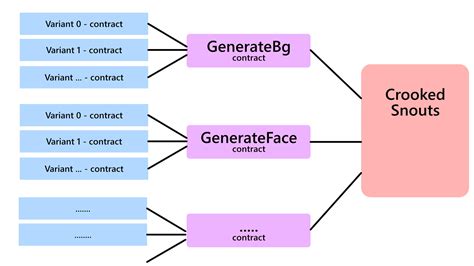Here’s an article on the use of ether.js to connect metamas with a local hardhat node provider:
Metamask connecting to a local hardhat node provider with etherea.js

When developing decentralized applications (DAPPS) that require interaction with external services such as metamascus or web3 services, it is crucial to connect with the local hardhat node. In this article, we will explore how to use ethers.js to achieve this connection.
Why use ether.js?
Ethers.js is the official library of JavaScript for interaction with Ethereum blockchain. It provides a simple and intuitive API to work with services such as Metamascus, Web3js and more. Using Ethers.JS, you can easily connect your local hardhat node to external services without worrying about installing additional infrastructure or configuration.
Setting up local hardhat node
Before we dive into connecting metamascus, ensure that your local hardhat node is properly placed. Here’s a brief browsing of steps:
- Install the
Truffle: Truffs provides a way to manage and interact with your blockchain projects using JavaScript.
- Set up the new project directory and initialize it:
`Bash
Mkdir Metamascus-Connection-Uzor
CD Metamask-Landing-U-Uzor
NPX truffle init
`
3
strength
Pragma Solidity ^0.8.0;
MYCONTKRT CONTRACT
Nint256 public value;
Iche
`
- Compare and arrange your contract:
Bash
assembly of truffles
truffle distribution
`
Metamic connection with ether.Js
Now that you have a local hardhat node set, we connect the metamascus using ethers.js. We will use the library ofETESS.JS ‘to interact with metamask.
Create a new file called metamascus-connection.js and add the following code:
`Javascript
Const Ethers = demand (‘ethers’);
// Set up the address of the contract and ABI
Const Treaty = ‘0x …’; // Replace the contract address
Const Abi = […]; // Replace with ABI with a contract
// Create a new instance of a service provider for your local hardhat node
Const Provider = New EtherS.Providers.httpprovider (‘http: // Localhost: 8545’);
// Create a new Ethers.JS instance of wallets using a Metamascus service provider
Const Wallet = New Ether.wallet (service provider, ‘0x …’); // Replace the private key metamask key
// Get an instance of a contract using a wallet
Const Treaty Contract = New ETERI.CONTATRACT (contracts, Abi, wallet);
// You can now use an instance of an interaction contract with Blockchain
contract.Value.set (123);
`
Example of use
Here's an example of how you can use a metamascus connection to set the value of the contract:
Javascript
Metamascus-connection.js
`
Assuming you have aMyContract.solfile in the same directory, you can call the following function to update the contract instance:
Javascript
Setvalue = (Value) => {
contract.Value.set (value);
Iche
`
Tips and variations
- Make sure you replace the ABI,
AbiandWalletcontract with your actual contract address, ABI and Private Key Metamascus.
- You can also use other ether.Js service providers such as
http: // Localhost: 8546orhttps: // mainnet.infura.io/V3/YouR_Project_id.
- If you use another web3 service provider (eg web
Following these steps and examples, you should now be able to connect your local hardhat node with a metamascus with ethers.js. Happy building!